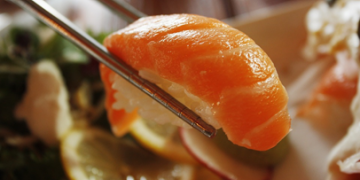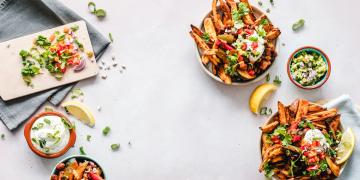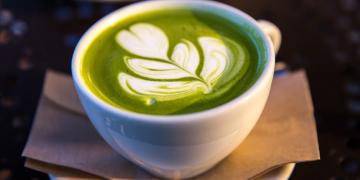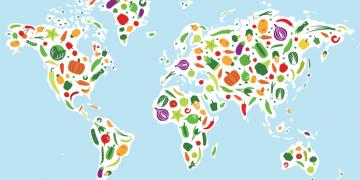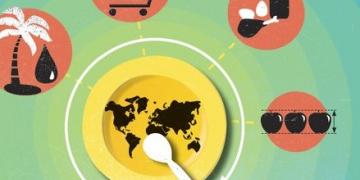

Salmon sushi is not a Japanese invention?!
Salmon sushi was not a Japanese, but a Norwegian invention. Before calling it one of their favorite sushi toppings, the Japanese had to have salmon sushi introduced to them by Norwegian businessmen motivated by hard globalization imperatives.
How Instagram affects the way we eat
Avocado toasts, rainbow bagels and crazy milkshakes are all the rage today in the food scene, and Instagram has a large role to play in this. “Instagrammable” food has changed the way we view food, and consume it as well.
Stephanie Buttermore's Cheat Day videos
Stephanie Buttermore and her layered social media personality give us insight into how influencers construct a widely desired body image. Her "Fantasy Cheat Days" make us wonder about the nature of such content and what it reflects.
Yoghurt, whose is it? Yoghurt as cultural exchange
When one hears yoghurt, they’ll most likely think of Greek yoghurt. However, yoghurt is not originally Greek. More countries, like Turkey and Bulgaria are branding and claiming it as part of their own cultural heritage and history.
What do real men eat? Online culture wars and the science of soy boys
Somewhere in 2017, soy boy got added to the terms used as insults to describe supposedly unmanly men. It became the latest insult of choice for the alt-right.
Matcha: Don't let yourself be fooled by superfoods
Superfoods are hot, and so is Matcha, the powdered green tea. Matcha is more than just tea, it is a superfood, an identity emblem and a social media phenomenon.
So, let's talk about food revolution
The truth of saving the world is way simpler than what we used to think. Changing your eating habit is the first step that anyone can take to change the world, and welcome to food revolution.
Mukbang: A ludic way to have a meal
Mukbang culture introduces a ludic way to enjoy food. In what way does this new approach to food challenge existing ideas on healthy living?
The Vegan lifestyle: how it went from rare to everywhere
10 years ago, being a vegetarian was hard, let alone being a vegan. Nowadays veganism is almost unavoidable in our daily lives. This article tries to explore when veganism became this big and how social media can help or has helped with this.
Deconstructing the 'Kapsalon'
In this article, Anastasia Goana Go Ying Ying deconstructs the 'kapsalon shoarma'. She argues that the kapsalon can be read as an index of superdiversity.
